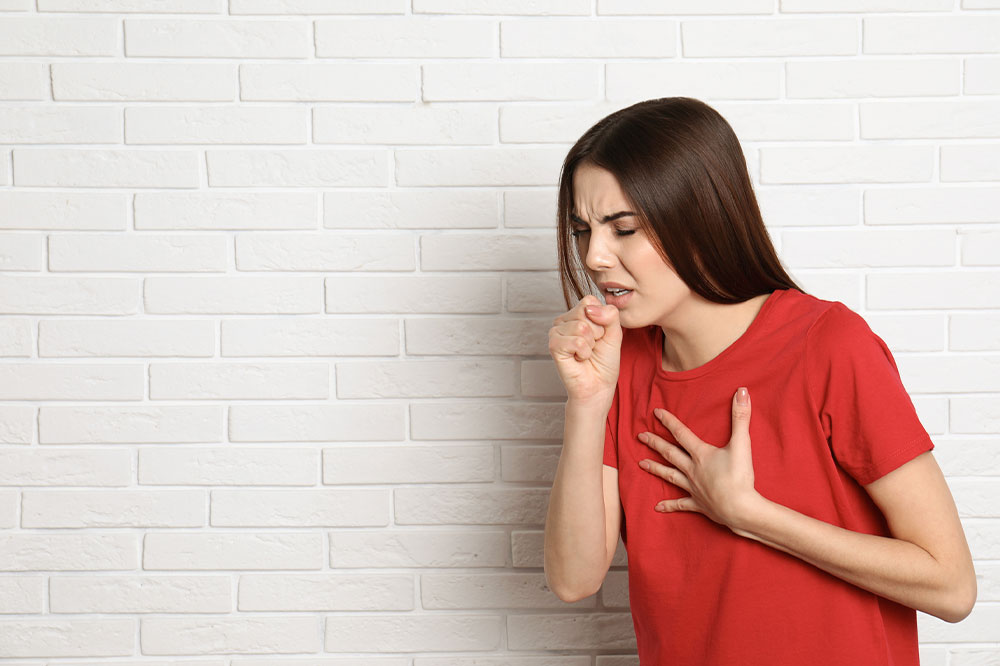Emphysema – Symptoms, Causes, and Management Options
Emphysema is a lung disease that causes the destruction of the air sacs in the lungs. It can lead to shortness of breath, chronic coughing, and wheezing. The best treatment for emphysema is prevention by avoiding exposure to dust, fumes, or other harmful chemicals. If you are at risk for emphysema because of family history or work, consult your doctor to understand how you can manage it with the right emphysema treatment.
Symptoms of emphysema
The most typical symptoms associated with this condition are:
Shortness of breath
Persistent coughing or wheezing
Squeaky sound while breathing
Fatigue
Chest tightness
Causes of emphysema
Emphysema is caused by a loss of elasticity in the lungs.

Other causes include exposure to specks of dust and fumes, especially when they’re inhaled over a long period of time (for example, while working with asbestos).
The severity of the symptoms will depend on the level of damage caused to the lungs. A viral infection such as influenza or pneumonia can also be seen as a cause of emphysema. Other respiratory irritants include paint fumes, automobile exhaust, certain fragrances, and burning incense. Using regular air filters can limit your exposure to these pollutants. Lastly, regular exercise can significantly increase your lung capacity.
Different emphysema treatment methods
Those with emphysema can have a difficult experience. Therefore, it’s important to know that there are many different methods for treating the disease, and that the most effective option for any given person is often determined by the severity of their symptoms and the overall health status.
Exercise
Following a regular physical training routine is an ideal way to improve the condition. Regular body activities like walking, cycling, swimming, low-intensity aerobics can boost lung function and alleviate the isolation associated with this chronic disease.
These are not meant to be a substitute for oral emphysema treatment. Instead, they are suggestions that may help you feel and manage the symptoms better.
It is important to note that patients with COPD may not respond the same way to exercise training. Physiological factors associated with exercise limitation include gas exchange abnormalities, dynamic lung hyperinflation, morphological changes in muscle fibers, and reduced functional metabolic capacities. Therefore, the weakest part of the physiological chain will limit exercise performance.
Disease counseling
Besides showcasing primary symptoms like shortness of breath or coughing, many people also experience the disease’s withdrawn behavior and other emotional symptoms. Thankfully, there are treatment options available. In addition to addressing physical symptoms, emphysema disease counseling may also focus on emotional issues.
Antibiotics
While there is no specific cure for emphysema, certain treatment options including prescriptions, behavioral therapy, and surgery can relieve symptoms. Antibiotics may be prescribed as an alternative treatment option to treat COPD exacerbations.
Antibiotics kill the bacteria causing inflammation in the lungs. The doses depend on the exacerbation’s severity. Ask the doctor about other treatment options if you’re concerned about using antibiotics as an emphysema treatment. The antibiotics should be taken every day, preferably on an empty stomach. For best results, take the prescribed dose every day. However, there are some exceptions to this rule. For example, some people may have trouble taking antibiotics and may need to take them for a more extended period than is required.
Lung transplantation
Emphysema treatment with lung grafting is a surgical procedure that replaces the damaged or diseased lung with a healthy donor lung. The new organ will be connected to the airways and blood vessels of the recipient, either in a unilateral or bilateral sequential transplant. Once attached, the incision will be closed with stitches or surgical staples, and a bandage will be placed over the wound. During the procedure, one or more tubes will be placed into the chest to drain excess air and fluid and allow the new lung to function normally.
While you may not be able to completely prevent the cause of the disease, you can take effective steps to manage it. You should also practice to your doctor’s suggestions while also rigorously following the prescriptions. Emphysema treatment options can help one feel better and live longer. Also, due to poor prognosis, the emphysema life expectancy is about five years. Make sure you consult a licensed physician to get the right treatment for the chronic lung disorder.

